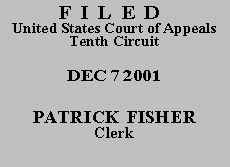

| In re: RONALD W. GREGORY and
DOROTHY L. GREGORY,
Debtors,
RONALD W. GREGORY and DOROTHY L. GREGORY, Appellants, v. U.S. BANKRUPTCY COURT, Appellee. |
|
In the underlying appeal before the district court, debtors Ronald W. Gregory and Dorothy L. Gregory, proceeding pro se, appealed the bankruptcy court's order denying their petition to reopen their Chapter 7 case. In response to a motion to dismiss filed by the bankruptcy court, the district court dismissed the bankruptcy court as a party to the appeal and dismissed the appeal with prejudice. Debtors now appeal the district court's denial of their motion to reconsider the order of dismissal. Because debtors filed their motion to reconsider more than ten days after the district court entered judgment, we treat the motion as a Fed. R. Civ. P. 60(b) motion for relief from judgment, and we review only the district court's denial of that motion and not the underlying order of dismissal.(1) See Van Skiver v. United States, 952 F.2d 1241, 1243 (10th Cir. 1991). Further, we review only to determine whether the district court abused its discretion in denying the motion. See id. at 1242, 1243. "That is to say, we will not alter [the district] court's decision unless it can be shown that the court's decision was an arbitrary, capricious, whimsical, or manifestly unreasonable judgment." Wright v. Abbott Lab., Inc., 259 F.3d 1226, 1236 (10th Cir. 2001) (quotation omitted).
Debtors failed to file a response to the bankruptcy court's motion to dismiss, and the district court treated the failure to respond as a confession to the motion. The district court also found that the motion to dismiss had merit. In their motion to reconsider, debtors argued that the district court should set aside the order of dismissal because they did not receive a copy of the bankruptcy court's motion to dismiss or the district court's order directing them to file a response to the motion. Importantly, debtors did not address the merits of the motion to dismiss or the district court's order of dismissal. The district court denied debtors' motion to reconsider, finding that they failed to inform the clerk of the district court of their change of address, and that they failed to demonstrate adequate grounds to reconsider the order of dismissal.
We hold that the district court did not abuse its discretion in denying the motion to reconsider. It is undisputed that the motion to dismiss and the order directing a response were mailed to debtors' address of record in the district court. Further, in March, 1999, the magistrate judge entered an order specifically directing debtors to file a notice of change of address in the district court. See Aplee. Supp. App. at 59. While it appears that debtors filed a notice of change of address in the bankruptcy court in response to the magistrate judge's order, see id. at 15, they failed to file a notice of change of address in the district court until after the order of dismissal was entered, see id. at 19, 303. Accordingly, we agree with the district court that debtors "cannot excuse their failure to actively participate in their Appeal by claiming that they did not timely receive all of their mail."(2) Id. at 316.
The order of the United States District Court for the District of Colorado denying debtors' motion to reconsider is AFFIRMED.
Entered for the Court
Senior Circuit Judge
*. This order and judgment is not binding precedent, except under the doctrines of law of the case, res judicata, and collateral estoppel. The court generally disfavors the citation of orders and judgments; nevertheless, an order and judgment may be cited under the terms and conditions of 10th Cir. R. 36.3.
1. Although we can review the underlying judgment when the notice of appeal from the denial of a Rule 60(b) motion is filed within the period for appeal from the underlying judgment, see Carpenter v. Williams, 86 F.3d 1015, 1016 (10th Cir. 1996), this exception is inapplicable here even if debtors are given the benefit of the 60-day period under Fed. R. App. P. 4(a)(1)(B).
2. While debtors attempt to expand their arguments on appeal to go beyond the mailing address issue and reach the merits of the order of dismissal, we do not address the arguments because debtors have not demonstrated any basis for Rule 60(b) relief. See Van Skiver, 952 F.2d at 1243. Further, debtors waived any challenges to the merits of the order of dismissal by failing to raise them in their motion to reconsider. See Walker v. Mather (In re Walker), 959 F.2d 894, 896 (10th Cir. 1992).